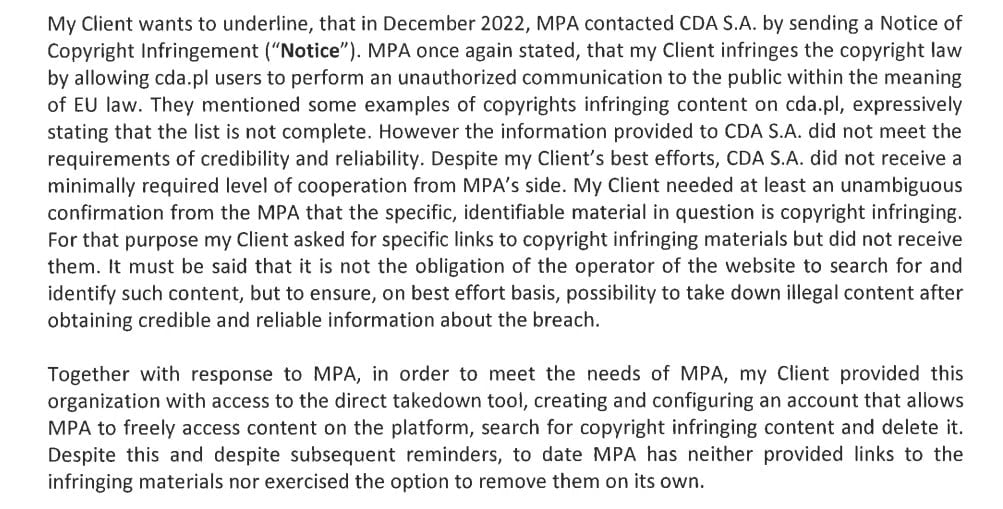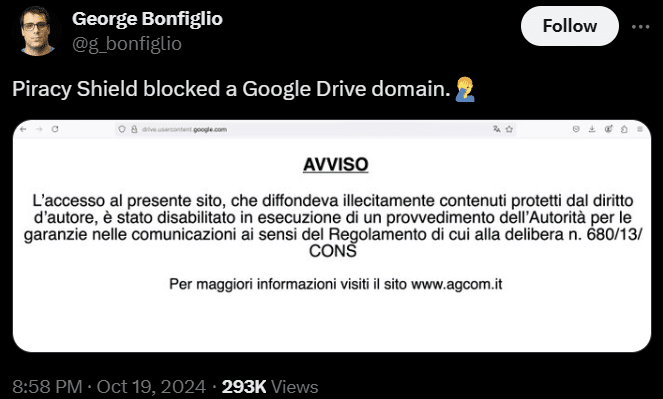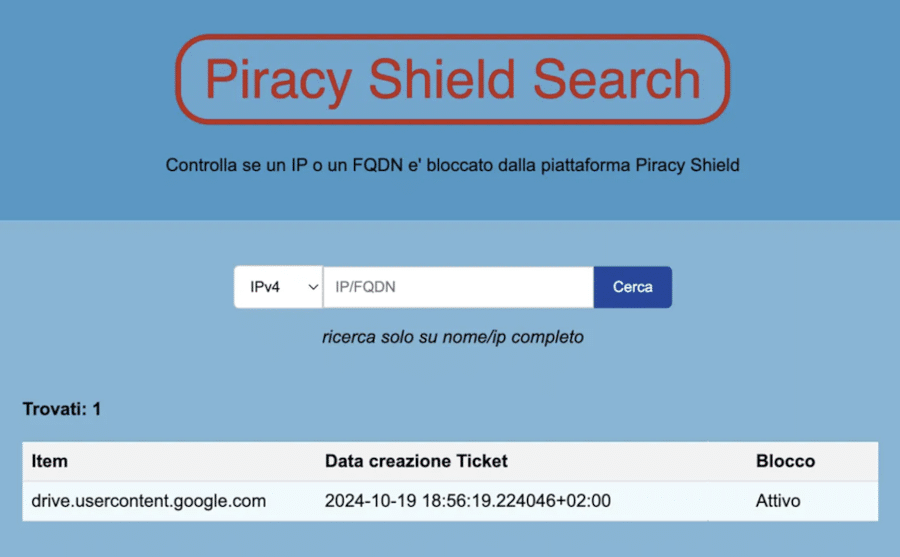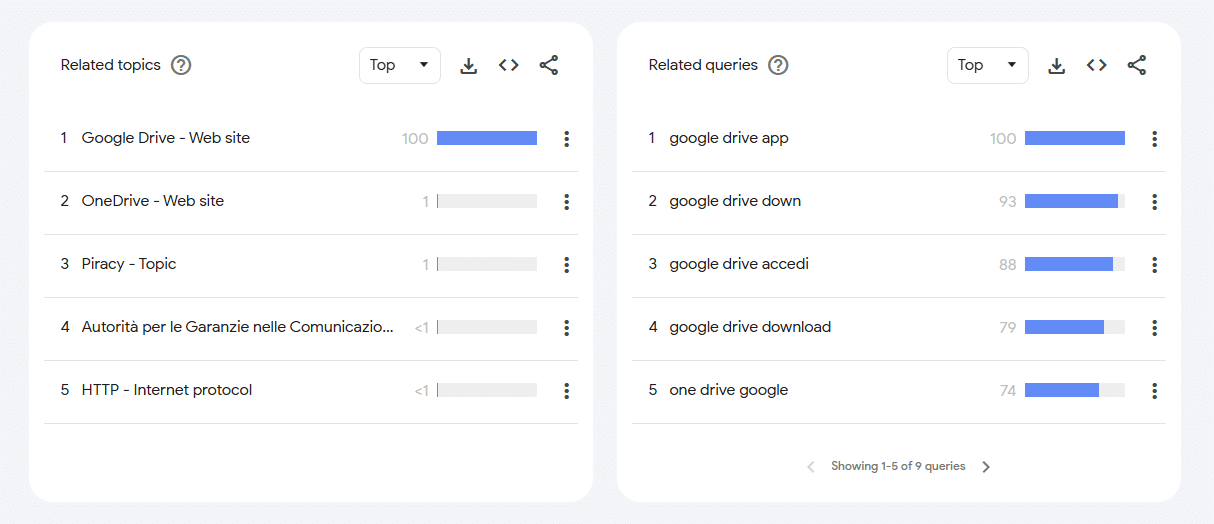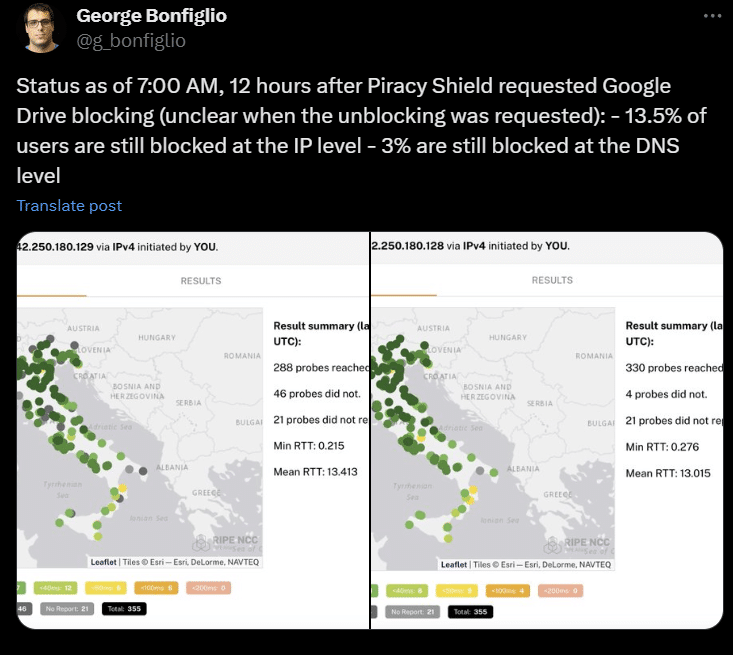-
chevron_right
Pirate IPTV’s ‘Breaking Bad’ Headteacher Risked More Than Most, Paid the Price
news.movim.eu / TorrentFreak · Saturday, 26 October - 11:56 · 5 minutes
 Having covered hundreds of arrests and dozens of convictions for piracy-related offenses over the years, news of another person going to prison is nothing out of the ordinary. See enough of these reports and in theory the impact will start to diminish.
Having covered hundreds of arrests and dozens of convictions for piracy-related offenses over the years, news of another person going to prison is nothing out of the ordinary. See enough of these reports and in theory the impact will start to diminish.
In the media, the one-size-fits-all portrayal of those convicted can at times blur any number of cases into one. Often depicted as hard-nosed experienced criminals, torn from the same despicable cloth, nothing of importance is mentioned to separate them. A name, age, a list of crimes, and a figure indicating the damage caused, lead to the most important detail of all; how many months or years they will deservedly spend behind bars and why nobody should waste a moment’s sympathy.
For the most persistent, hardcore pirates, who understand the risks and take them anyway, prosecution is an occupational hazard and those cases are taken for what they are. Yet the same can’t always be said about those who seem to drift gradually into activities now viewed as serious crime, often on a part-time basis, alongside their otherwise productive, responsible, law-abiding lives.
When prosecutions end up in court, no matter who committed them, the alleged crimes tend to look almost the same, regardless of the specific law underpinning the prosecution. The people behind them are not, however. The prosecution of former headmaster Paul Merrell stands out as a prime example.
The Gateway Drug: Facebook
The background to Merrell’s conviction is as non-typical as these cases go. While working as a deputy headteacher at a school in Coventry, a school an hour’s drive away was sending out distress signals. In dire need of a headmaster but unable to afford one, Merrell took the job on for a £13,000 reduction in salary and started to turn the school’s fortunes around. For this he deservedly received universal praise.
In parallel, Merrell had reportedly learned about IPTV on Facebook. As a new customer, subsequently purchased a subscription from a then relatively unknown provider called Flawless TV. Had a crystal ball been available back in 2017, Merrell would’ve observed the operators of Flawless being sent to prison in 2023 for more than 30 years.
Media Maverick
Without the benefit of such foresight, Merrell continued to run a school during the day and began reselling Flawless subscriptions on the side. By now operating under the name Media Maverick on social media, customers hoping to watch Sky TV and BT Sport were in plentiful supply. And at just £10 per month, presumably more than happy with the 90% discount versus official packages.
Whether the success of the business proved too intoxicating, or extra money became too useful, is unclear. But instead of jumping off the runaway train on track for disaster, Merrell strapped in and began declaring around £25,000 in profits to HMRC each year under the heading “educational resources and online support.”
Those declarations were clearly dishonest; or maybe, given his otherwise excellent character, that was Merrell’s way of ensuring he paid at least some tax as a small token of his underlying honesty. Even in the event that was true, to rightsholders, investigators, and the police, that means absolutely nothing.
The Beginning of the End
In April 2020, an investigator made a test purchase from Media Maverick, paying £10 through PayPal to an account operated by Merrell. Three days later the investigator logged into the Media Maverick service and accessed multiple commercial channels, including streams belonging to Sky and BT Sport. Merrell suspected nothing, and when the investigator bought another subscription in November 2020, that didn’t change.
Late January, 2021, a warrant was executed at Merrell’s home, and five electronic devices were seized. In a subsequent interview Merrell admitted that he’d serviced 1,000 customers since 2017, a figure later revised to 2,000 by 2021.
An analysis of the seized devices revealed that Merrell’s revenue was more than the £25,000 declared annually to HMRC. In total, Media Maverick had generated over £400,000 in subscription payments.
On October 27, 2023, at Birmingham Crown Court, Merrell changed his plea to guilty on charges of possessing, selling, or distributing a device designed to circumvent technical measures, and for providing, promoting, advertising, or marketing a service for that purpose.
In a sea of similar prosecutions for serious criminal fraud, a prosecution for ‘circumventing technical measures’ lacks the same sinister tone, despite being directly linked to the same underlying acts. At sentencing in February, the punishment was 12 months’ imprisonment on each count, to run concurrently.
Request for Sentence to Be Suspended
Merrell’s request to reduce the custodial sentence to 12 months suspended led the Court to examine various aspects of the offending and to consider whether the original sentence was appropriate.
From the beginning, the odds are stacked against those convicted of these types of crimes. Since this type of offending can be difficult to detect and investigate, a relatively rare conviction can be seen as an opportunity for the court to hand down a deterrent sentence, unless other aspects of the case indicate otherwise.
Too Long, Too Much
In this case the duration of the offending spanned four years and didn’t end until the search warrant was executed. During that four-year period, significant profits were made causing financial damage to broadcasters, the court said. The exact amount proved impossible to determine, but an estimate by the judge indicated that over the four years, between £2 million and £3 million in revenue was diverted away from the broadcasters.
While mindful of significant personal mitigation in Merrell’s case, the offending was not considered amateur, minor, or short-lived. That was another factor in favor of a custodial sentence, on top of the alleged damage to broadcasters.
Surely, a positive could be found in Merrell’s otherwise good character, his work at the school where he took a significant pay cut, perhaps? The Court of Appeal did consider his role as headmaster; by questioning whether the offending was compatible with the running of a school.
Risk vs. Reward vs. The Unknown
Overall, the Court found that the seriousness of the offending outweighed the arguments in favor of a suspended sentence. Only immediate custody would ensure appropriate punishment for the crimes committed.
With that the appeal was denied, but was that the right decision? Through the prism of his dedication to teaching, investment in family, a previously clean record, and the unlikely prospect of any type of future offending, probably not. From the side of the prosecution, absolutely.
News of another arrest next week or next month, of someone who knew exactly what they were doing, may not move the needle. The arrest of someone who thought they knew what they were doing, and risked a lifetime of hard work, personal achievement, and family life, before everything went wrong, isn’t a hard luck story. It’s a tragedy.
From: TF , for the latest news on copyright battles, piracy and more.

 With war still raging in Ukraine, writing about the collateral damage to Russia’s cinema industry seems vanishingly unimportant.
With war still raging in Ukraine, writing about the collateral damage to Russia’s cinema industry seems vanishingly unimportant.
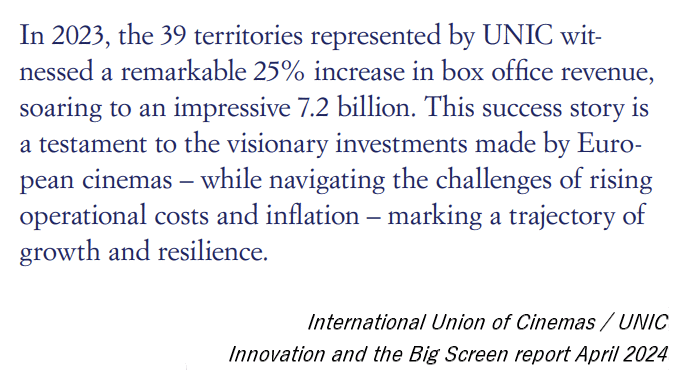 For comparison, the bloc to the west of Russia has a thriving cinema industry. It not only pays the going rate for movies but also demonstrates impressive growth while doing so.
For comparison, the bloc to the west of Russia has a thriving cinema industry. It not only pays the going rate for movies but also demonstrates impressive growth while doing so.
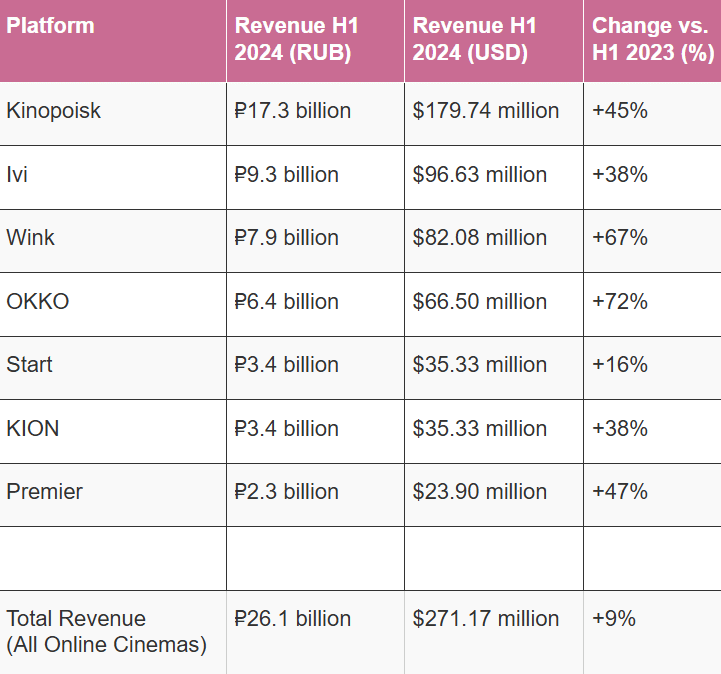
 Manga and anime have become increasingly popular in recent years. These formats originate in Japan but are now popular
Manga and anime have become increasingly popular in recent years. These formats originate in Japan but are now popular



 More than twelve years after an unprecedented law enforcement operation shut down file-sharing giant Megaupload, founder Kim Dotcom remains in New Zealand.
More than twelve years after an unprecedented law enforcement operation shut down file-sharing giant Megaupload, founder Kim Dotcom remains in New Zealand.

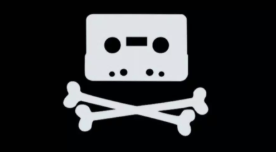 In August, Cox Communications filed a petition at the U.S. Supreme Court,
In August, Cox Communications filed a petition at the U.S. Supreme Court,
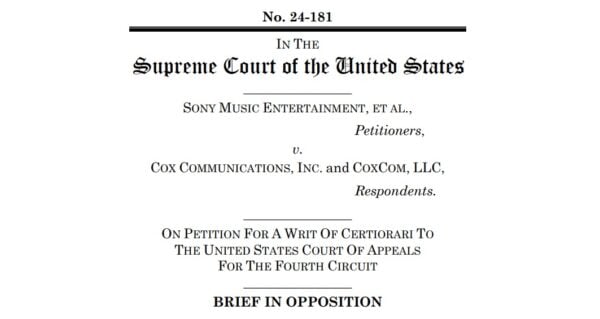
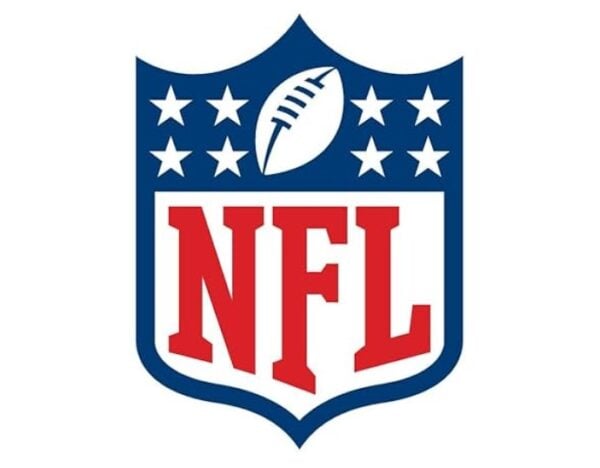 Last year, the NFL asked the U.S. Government’s Patent and Trademark Office to help tackle live-streaming piracy.
Last year, the NFL asked the U.S. Government’s Patent and Trademark Office to help tackle live-streaming piracy.
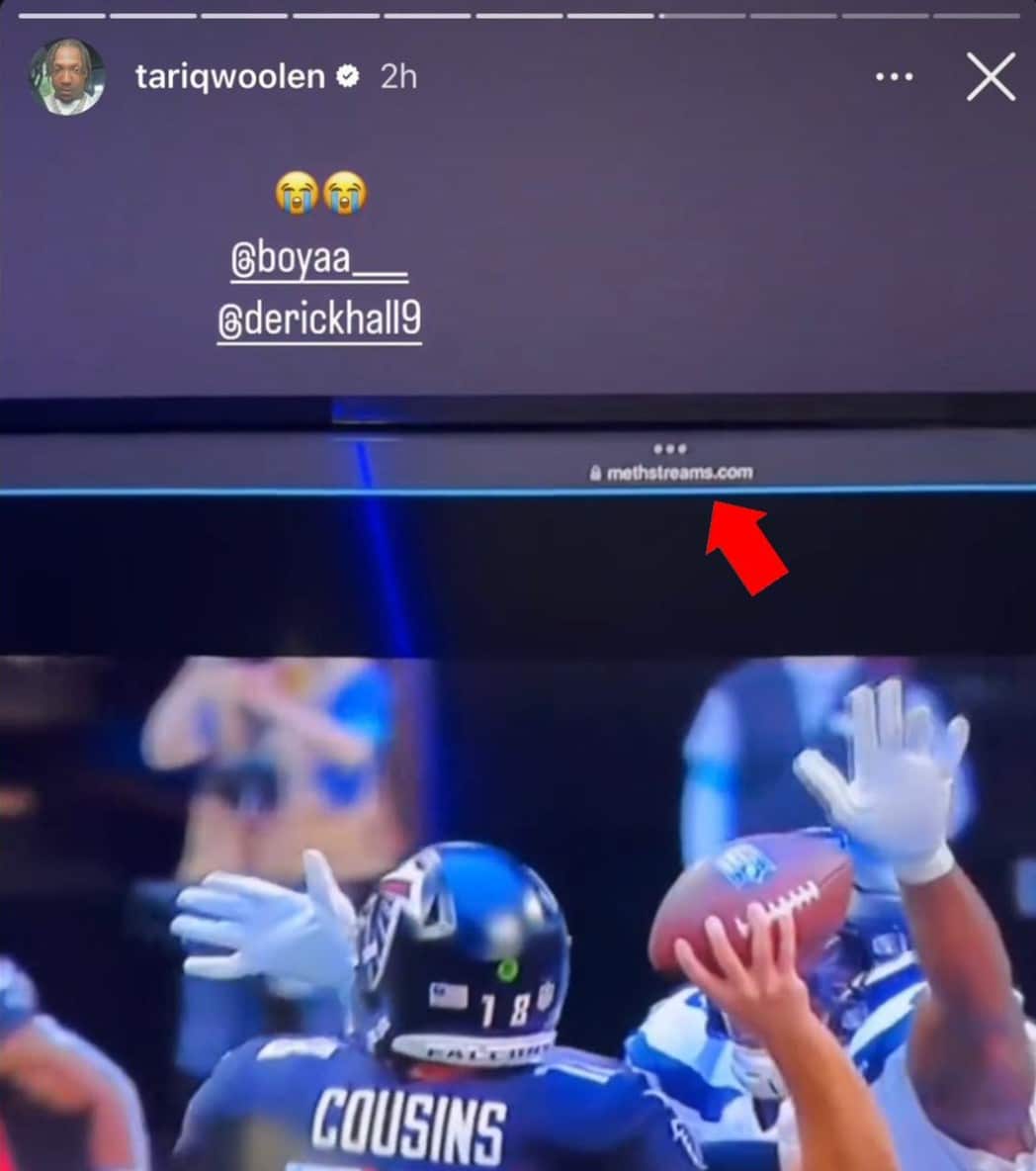
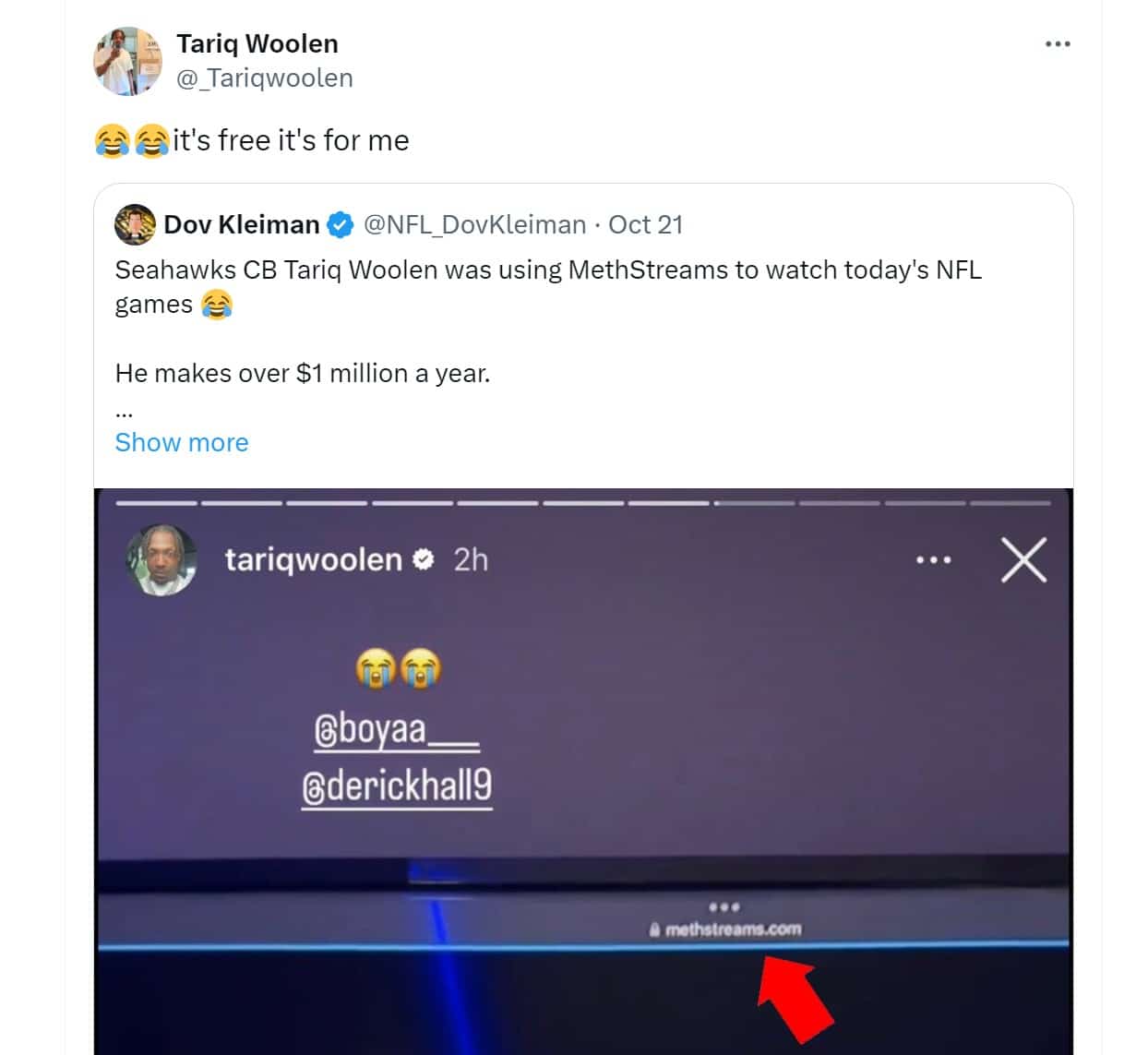
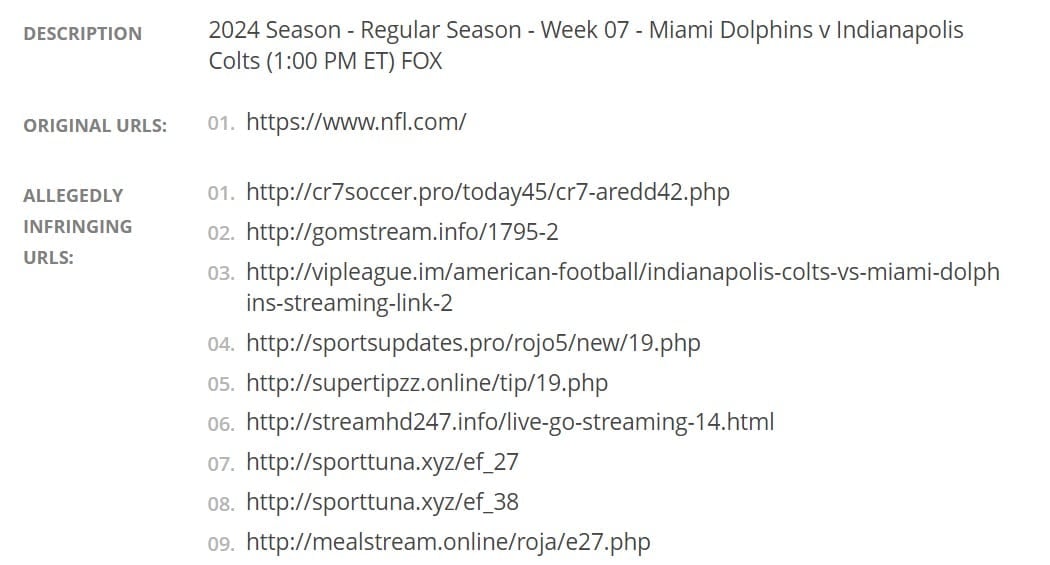
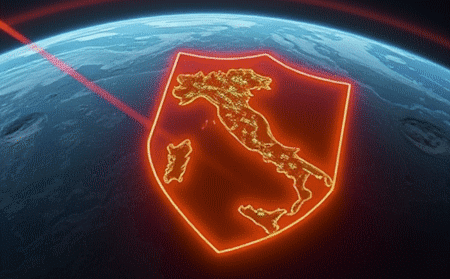
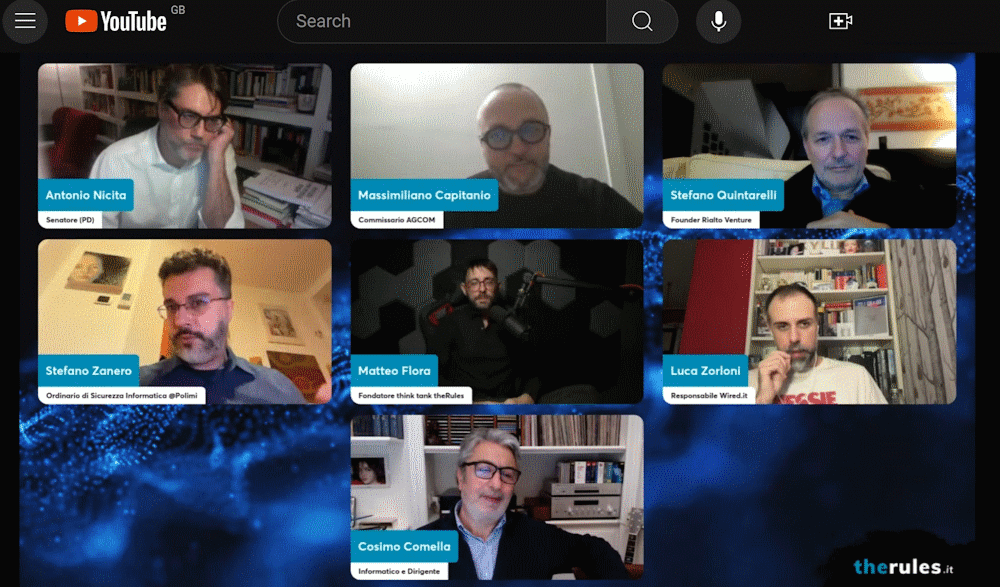
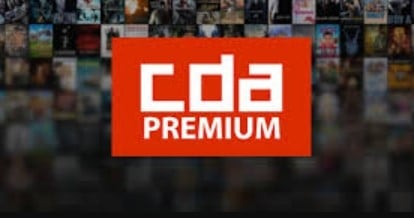 Every year, the US Trade Representative (USTR) asks interested stakeholders to identify ‘notorious’ foreign piracy markets.
Every year, the US Trade Representative (USTR) asks interested stakeholders to identify ‘notorious’ foreign piracy markets.

